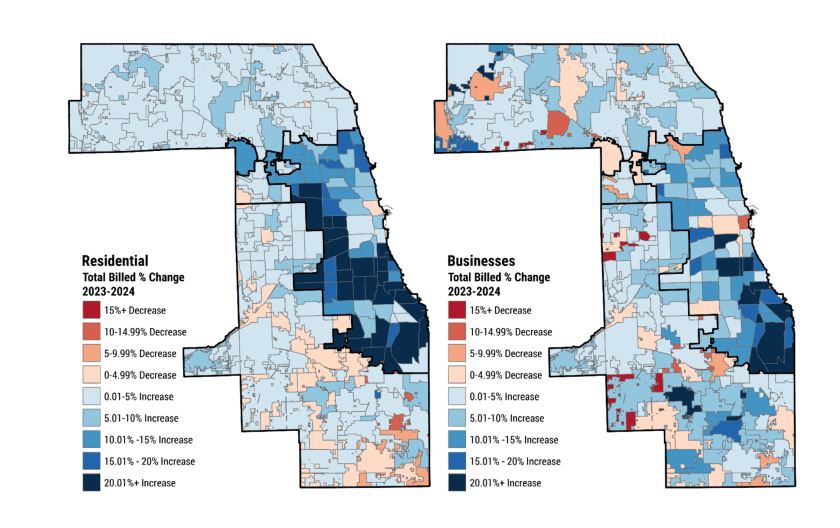Legal
The 7 Contract Clauses Every Chicago Real Estate Agent Should Understand Before Submitting an Offer
Passionate writer sharing insights, expertise, and knowledge on various topics to inspire and inform readers worldwide.

In a competitive and increasingly detail-sensitive real estate environment, the strongest agents are the ones who reduce uncertainty for their clients. That confidence does not come from scripts or personality alone. It comes from understanding how deals actually work at the contract level. You don’t need to be a lawyer to excel here, and you certainly shouldn’t attempt to provide legal interpretation—but there is a meaningful middle ground. The most successful agents are the ones who have enough familiarity with common contract clauses to anticipate where friction may arise, set expectations accordingly, and bring in the attorney strategically.
Most deals do not fall apart because of something dramatic. They fall apart because someone was surprised. The more you understand the structure and implications of the contract itself, the less your clients will feel blindsided as the transaction progresses.
Attorney Review Period
Illinois contracts typically include a five-business-day attorney review period. Many clients—and some agents—think of this as little more than a checkmark before moving forward. But this period is where important clarifications happen. Language can be tightened, unclear expectations can be reset, errors can be corrected, and the tone of the negotiation can be set for the rest of the transaction. When you explain this period as a protective, normal, and proactive part of the process, your client relaxes rather than braces for conflict.
Inspection Contingency
Inspections are where emotions run high. Chicago has a wide variety of aged housing stock, ranging from pre-war multi-units to post-1960s suburban subdivisions with very different standards of maintenance. The key is understanding what type of inspection contingency the offer contains.
Is the property “as-is”?
Does the contingency allow negotiation only on major safety concerns?
Or is it a general repair contingency?
When you can explain that ahead of the inspection, the client does not misunderstand what the report means. You help them distinguish between “expected wear and tear” and “meaningful discovery.”
Earnest Money Terms
Earnest money disputes can drag on for months if expectations were not set early. The agent should understand when the deposit is due, how it can be returned or forfeited, and who officially controls escrow. You should not promise outcomes here, but you should make sure your client understands the process. This clarity prevents frustration later.
Financing Contingency
When interest rates shift or lender underwriting tightens, financing contingencies become critical. The buyer must meet clear deadlines for mortgage approval, and you should discuss with your attorney how to position the timeline so it does not create unnecessary pressure. This is particularly important with first-time buyers who may not realize how many moving parts exist between pre-approval and final commitment.
Appraisal Contingency
A low appraisal can shock a buyer—or stall a deal. When you explain upfront that appraisal is a valuation mechanism rather than a final judgment of worth, clients are more willing to explore solutions. For example, they may choose to renegotiate, bridge the gap, or request specific documentation to challenge the appraisal. The key is not letting the appraisal be the first moment the buyer considers what happens next.
Condo and HOA Disclosures
In Chicago, a condo unit is never just the unit. It comes attached to a building culture, a board history, and a financial condition. Clients appreciate when you call attention to reserves, special assessments, building litigation, or deferred maintenance—not to create fear, but to create transparency. Buyers want to feel they are stepping into a predictable situation.
Title and Survey Requirements
In older neighborhoods and many suburban properties, fence lines, additions, garages, and driveways carry stories. Those stories are sometimes reflected cleanly in title and survey documents—and sometimes they’re not. You don’t need to solve these issues. You only need to recognize when they are present and ensure the attorney intervenes while you still have full negotiation leverage.
The Larger Point
Legal knowledge is not about being a lawyer. It is about being a stabilizing force. When you understand how these clauses shape the flow of the transaction, you stop reacting and start guiding. You are no longer the person who “finds houses.” You are the person who ensures the client moves through the process with clarity, dignity, and confidence.
And especially in a market where every client is comparing their experience to others, confidence is the true differentiator.
Author



